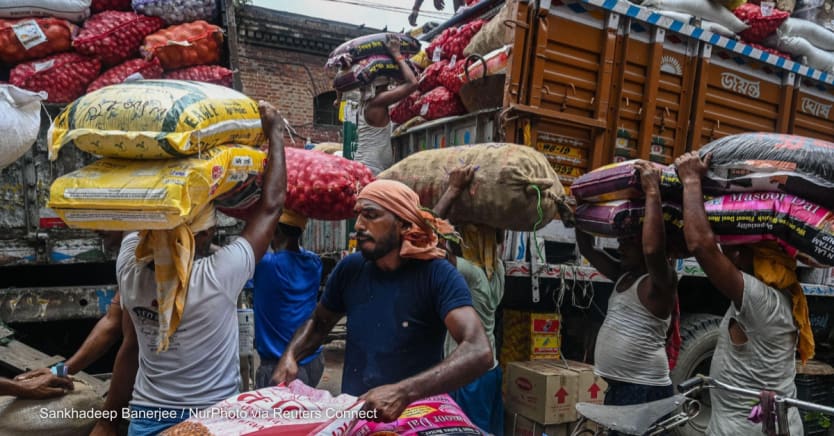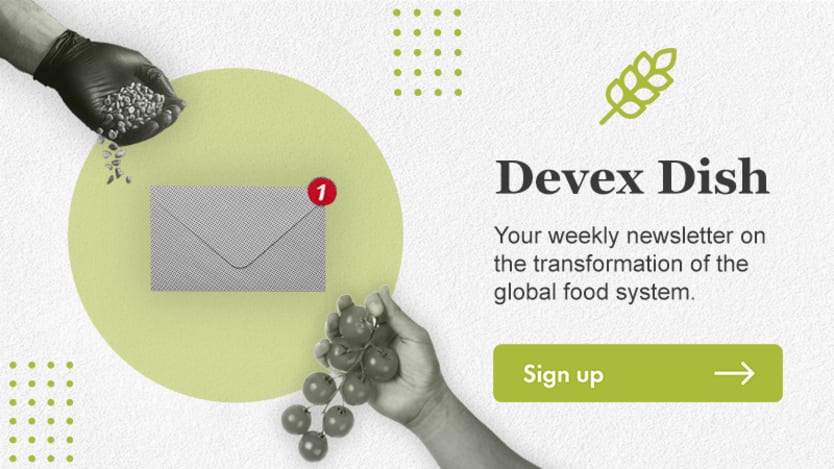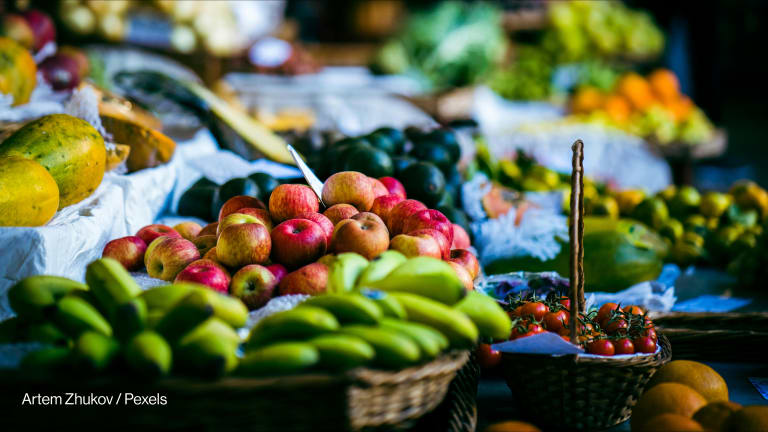Opinion: Our food system needs crisis proofing. Start with windfall tax

An untold story of a fragile and unsustainable global food system has been unfolding since long before the tanks rolled into Ukraine, governed by the interests of high-income nations and their corporations.
This fragility began to be exposed by a confluence of factors: The sudden relaxation of COVID-19 restrictions in 2021 led to an economic boom in which supply and logistics struggled to match the pace of demand. Prices of most goods began to rise incessantly, especially energy. Quotations of natural gas, the key ingredient behind urea fertilizer production, which accounts for more than half of global nitrogenous fertilizer use, skyrocketed, squeezing the margins of farmers and casting doubt on whether the world could feed itself.
Then, Russia’s war in Ukraine — both countries are among the largest grain and fertilizer exporters — gave rise to the prospect of food shortages that reverberated around the globe, sending benchmark prices to record levels in 2022. The war was the last straw in sending a highly vulnerable global food system into crisis mode.
The destructiveness of global warming has since intensified, with drought and heat stress afflicting the major breadbaskets of the world, while devastating monsoon rains in major rice-exporter Pakistan have submerged vast swaths of the country.
In all, the four Cs of COVID-19, conflict, and climate change have led to an unprecedented rise in the cost of living, conspiring to put the world at the precipice of the most catastrophic food crisis in 50 years. While international food prices have fallen back to pre-Ukraine conflict levels, but are still considerably higher than a year ago, soaring inflation coupled with a spiraling U.S. dollar — the currency of global trade — has resulted in severe erosion of international purchasing power of the global south.
This is compounded by lower-income countries’ lack of foreign exchange reserves to procure food from the world marketplace. And again, access to affordable food is the most pressing problem of all.
The Pro read:
Food crisis: Mineral fertilizers 'here to stay,' says IFDC
In an interview at Devex World, Douglas Kerr, the vice president of the International Fertilizer Development Center, said that some African countries are exploring local manufacturing capabilities amid a critical shortage of synthetic fertilizer.
While in 2022, enough but expensive food might be available, next year we may be crossing the Rubicon. The reason is that natural gas is now becoming increasingly unaffordable, forcing fertilizer manufacturers to close and propelling urea quotations to the point that farmers will be priced out of the market. A collapse in the application of this fertilizer translates to a concomitant reduction in the global harvest.
Where is the global response? As in past crises, myopia dominates. The mantra of the Group of 20 leading economies to keep global food markets well-supplied and free-flowing rarely succeeds — 34 countries have now enacted export restrictions. Hoping the world will farm its way out of trouble is high risk, given that the climate crisis is wreaking havoc on agriculture.
Yet, the world’s insatiable appetite for livestock products from an unsustainable industry that each year diverts over 1 billion metric tons of grains from food to feed markets continues unabated. Similarly, the fixation on biofuels, which worldwide consume around 200 million metric tons of grains and over 50 billion liters of vegetable oils, goes unquestioned. Equally troubling is that our energy-hungry food systems require seven units of fossil fuels to produce just one unit of food. And, what is more, the fossil fuel sector is perversely subsidized to the tune of $7 trillion.
How can we avert catastrophe?
Moratoria should immediately be placed on feeding biofuel and livestock sectors, such as wavering policy-led blending requirements for biofuels. The U.N. secretary-general’s plea to introduce windfall tax on “immoral” and “excessive oil and gas profits” holds true for transnational food corporations — just four hold a near 90% controlling stake in global grain trade, with one reporting record earnings of $165 billion in 2022, a 23% earning increase from a year earlier.
Windfall taxes or Bretton Woods Committee institutions could operationalize a Food Import Financing Facility that seeks to safeguard the food security of 1.79 billion people in the global south.
The Pro read:
Can true cost accounting lead to sustainable food systems?
Food experts argue that the current price mechanisms used within our food systems fail to account for the social, environmental, and health impacts.
And a more fundamental transformation has to start now. Dependence on a handful of exporters for food, energy, and fertilizer needs, poses exceptional and unacceptable risks. Critically, we must decouple food systems from fossil fuel inputs, which are holding world food security to ransom.
Repurposing a fraction of fossil fuel subsidies to decarbonize food systems is a critical step toward their much-needed transformation. Incentivizing readily available and proven technologies — such as agroforestry, shifting away from monoculture, and harnessing agroecological practices — boosts soil health, improves the availability of nutritious food, and strengthens climate resilience.
In this regard, investment in renewables and bio-fertilizers is imperative, integral to the circular economy, and increasingly important for planetary health.
Ultimately, however, we need to value our food systems differently by including their true costs on human health and the environment. The benefits would be manifold: a reduction in food waste, a far more productive, diverse, and sustainable agricultural sector that respects our natural capital, and a sense of realism in achieving emissions targets under the Paris Agreement on climate change.

Search for articles
Most Read
- 1
- 2
- 3
- 4
- 5










